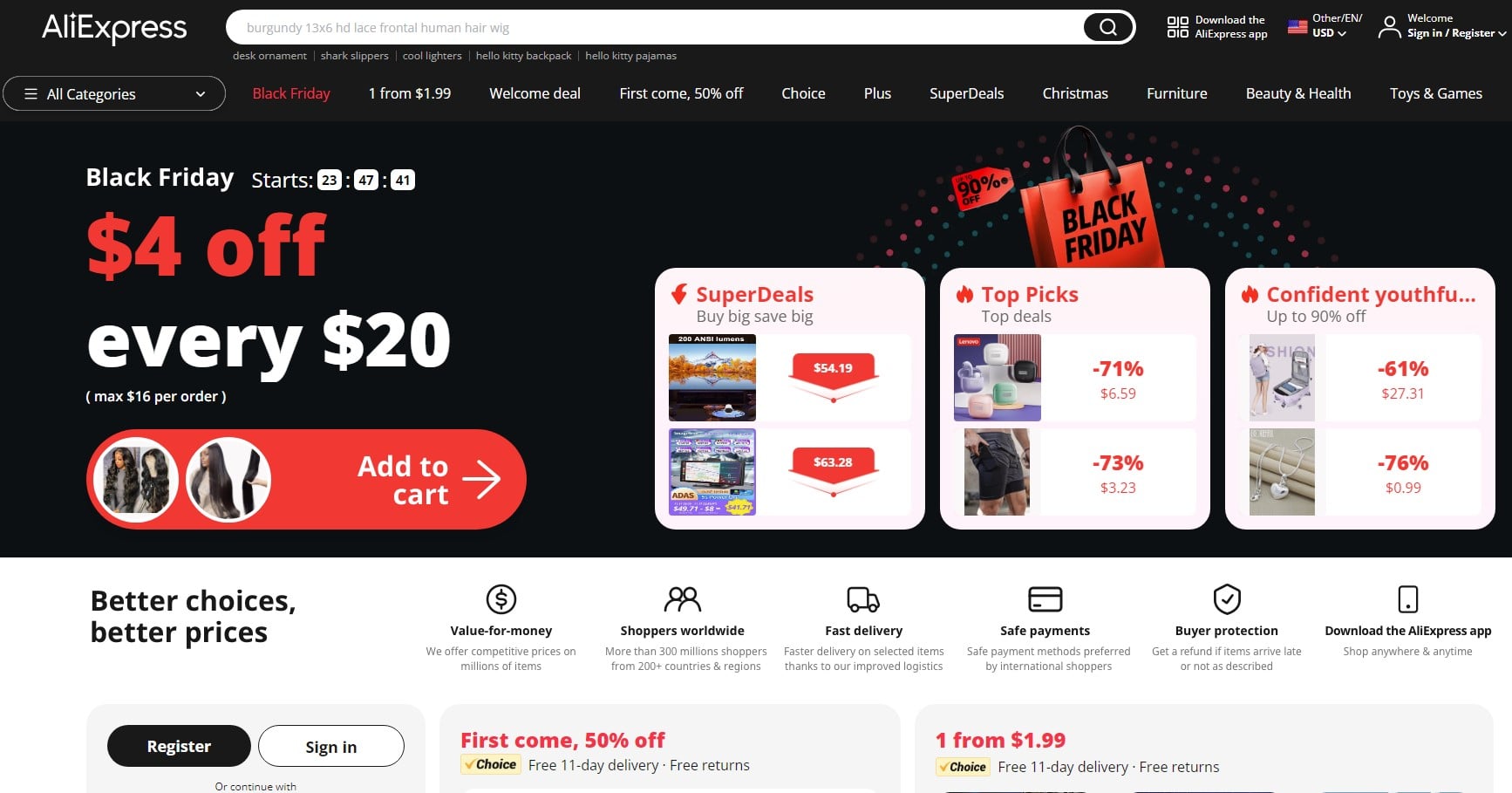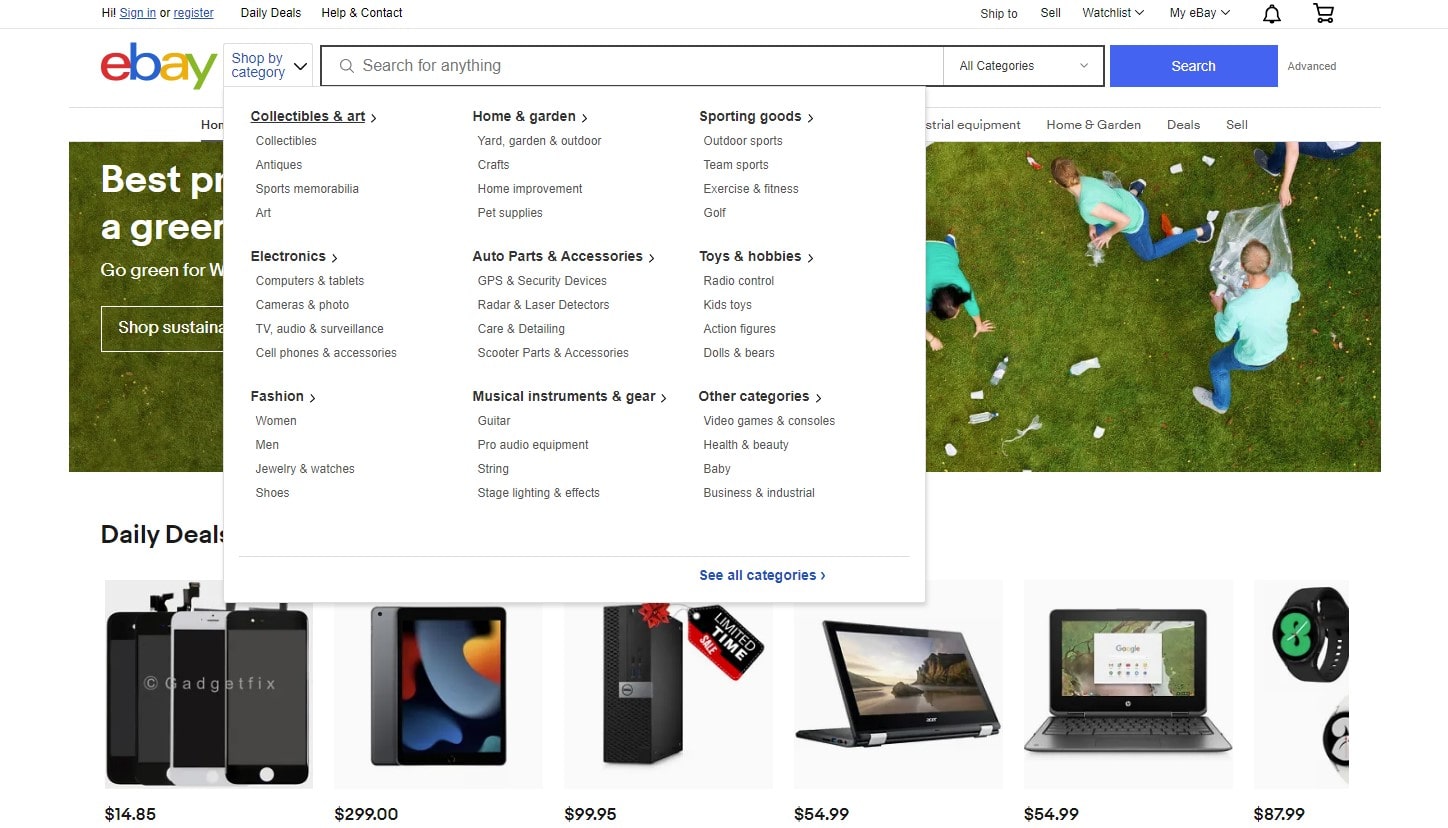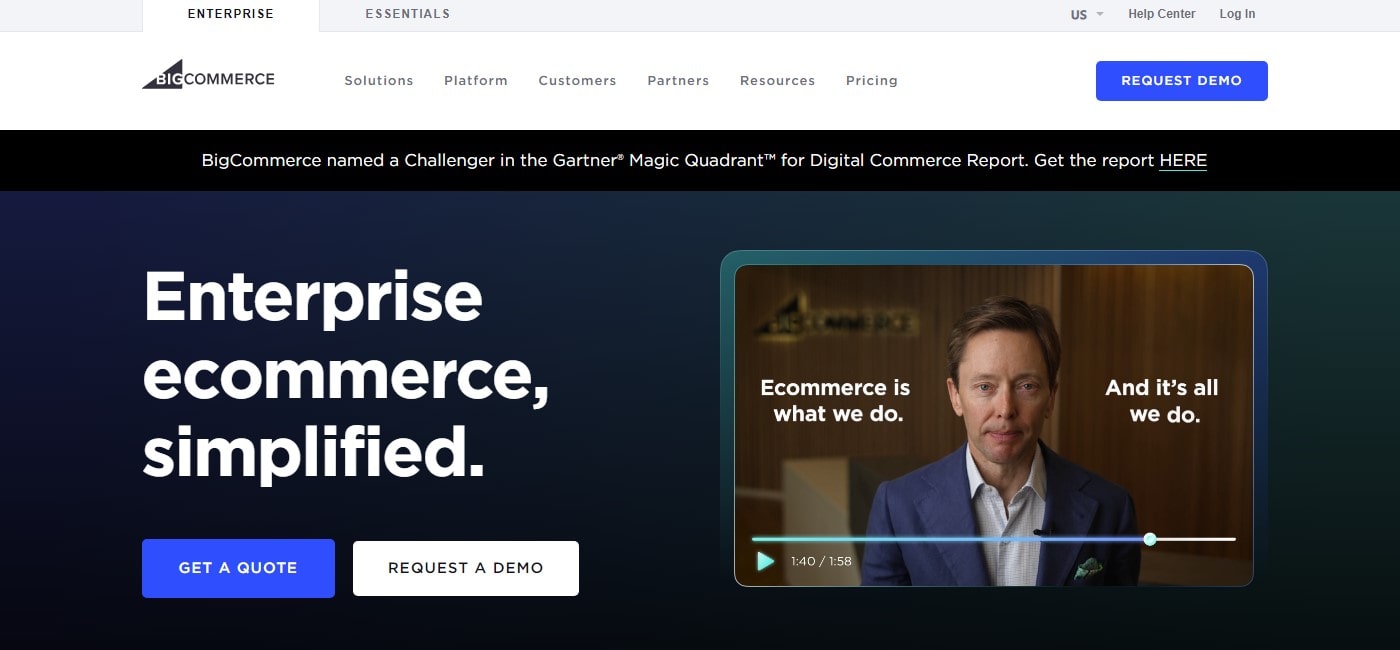In the bustling digital marketplace, an ecommerce platform stands as the backbone of any thriving online business, seamlessly merging technology with commercial ingenuity. A robust ecommerce platform not only simplifies transactions but also scales a business’s operations to meet contemporary market demands. Here’s what sets apart a superior ecommerce platform:
- Streamlined inventory management
- Intuitive user interfaces
- Secure payment gateways
- Responsive customer service portals
Embracing such a platform ensures that businesses stay on the pulse of digital trends, harnessing ecommerce to propel their brand forward. These platforms cater to various business models, from B2B to B2C, crafting a bespoke online environment that speaks directly to target audiences. The advantages of integrating an advanced ecommerce solution are manifold – amplified reach, meticulous analytics, and heightened customer engagement.

For businesses ready to elevate their ecommerce experience, leveraging the Plerdy tool can dramatically enhance conversion rate optimization (CRO) and user experience (UX). Transform your ecommerce platform into an unstoppable force in the competitive business landscape – with Plerdy, your brand is poised to not just participate but dominate the ecommerce conversation. Dive into the digital commerce wave and let your platform do the heavy lifting, all while you watch your business achieve unprecedented growth.
Definition of an Ecommerce Platform
An ecommerce platform serves as the digital foundation for businesses eager to sell online. Think of it as the electronic storefront – a space where products get showcased, customers browse, and transactions occur seamlessly. These platforms integrate various business processes – from product listing and inventory management to payment processing and customer feedback.
Specific niches utilize ecommerce platforms in diverse ways:
- Fashion Retailers: Use them to exhibit a vast range of clothing items, highlighting style, size, and pricing.
- Bookstores: Employ these platforms to offer previews, digital formats, and related titles.
- Electronics Vendors: Capitalize on the platform’s capability to showcase product specifications, reviews, and comparisons.
The correct ecommerce platform may make or kill a business online. It’s not merely about launching an online store; it’s about crafting an interactive, efficient, and responsive digital shopping environment. By anchoring your business on a robust platform, you set the stage for impressive online growth, tapping into the immense potential of the ecommerce industry.
Core Features of Ecommerce Platforms

In the vibrant space of ecommerce, platforms stand out by offering businesses a suite of features tailored to optimize online sales. When selecting an ecommerce platform, businesses prioritize functionalities that amplify user engagement, simplify operations, and guarantee secure transactions.
A comprehensive ecommerce platform invariably includes:
- Product Management: Whether it’s a boutique jewelry shop showcasing intricate designs or a music store offering digital downloads, streamlined product listing and categorization become paramount.
- Checkout and Payment Integration: With consumers expecting hassle-free checkouts, platforms step up with integrated payment gateways – think artisan coffee roasters selling globally and needing diverse payment options.
- Responsive Design: As businesses cater to users across devices – from tablets to phones – a mobile-responsive interface becomes non-negotiable.
- Analytics and Reporting: Fitness brands, for instance, might dive deep into customer behavior, tracking popular workout gear and analyzing sales trends.
- Customer Support Tools: Successful platforms offer robust support features, ensuring businesses – like specialty toy stores – can address concerns and nurture loyalty.
At the heart of every thriving online business lies a dynamic ecommerce platform, replete with features that drive sales, foster trust, and enable growth. As the digital marketplace evolves, so too do the capabilities of platforms, ensuring businesses remain agile and customer-centric in their approach.
Types of Ecommerce Platforms

Navigating the ecommerce landscape, businesses encounter a variety of platform options, each designed to cater to distinct needs and operational scales. These platforms have grown in response to the diverse requirements of businesses, whether they’re niche artisans or global retailers.
Delineating the major types of ecommerce platforms:
- Open Source Platforms: Perfect for businesses that have the tech prowess to customize every aspect of their online store. For instance, an indie bookstore might opt for this to give their digital space a unique literary flavor.
- SaaS (Software as a Service) Platforms: Ideal for businesses aiming for a hassle-free setup. Picture a fledgling organic skincare brand wanting a streamlined online presence without delving deep into tech intricacies.
- CaaS (Commerce as a Service) Platforms: Businesses, like luxury watch vendors, might lean into this, giving them the freedom to separate the front end from back-end operations.
- Proprietary Platforms: Custom-built solutions crafted specifically for a business. Imagine an art gallery requiring a platform to support virtual reality tours of their exhibitions.
Selecting the right type of ecommerce platform hinges on a business’s goals, technical capabilities, and scalability needs. With a tailored platform, businesses position themselves to capture the vast opportunities the ecommerce realm offers.
Open Source Platforms
In the diverse landscape of ecommerce, open-source platforms shine as customizable powerhouses. Businesses keen on tailoring every facet of their online experience gravitate towards these platforms, weaving a digital tapestry that captures their unique brand essence. Since these platforms are essentially a blank canvas, they offer an unmatched level of adaptability and independence.
Distinctive aspects of open-source ecommerce platforms include:
- Unbridled Customization: A gourmet coffee roaster, for example, can mold their platform to offer subscription boxes, personalized blends, and interactive bean origin maps.
- Community Contributions: Often, open-source platforms thrive on community-driven enhancements. An emerging fashion label might leverage community-designed themes or plug-ins to elevate their digital showcase.
- Self-Hosting Opportunities: Businesses, like handcrafted furniture artisans, can select their hosting solutions, optimizing for speed and reliability.
- Direct Code Access: Niche businesses, such as a vintage vinyl records store, can dive into the code, refining and tweaking for optimal performance.
Though open-source platforms demand a steeper learning curve, they hand the reins of the ecommerce journey directly to businesses. This empowers them to shape, refine, and evolve their platform, ensuring it mirrors their growth and vision perfectly.
SaaS (Software as a Service) Platforms
In the intricate tapestry of ecommerce, SaaS platforms emerge as the go-to solutions for businesses craving simplicity coupled with potency. These platforms offer businesses the advantage of streamlined operations without diving deep into the tech trenches. By providing a ready-to-use framework, SaaS platforms make the ecommerce journey less daunting and more focused on the core business pursuits.
Key attributes that define SaaS ecommerce platforms:
- Plug and Play: A budding artisanal cheese brand can swiftly set up shop, leveraging pre-built templates to showcase their delectable offerings.
- Maintenance-Free Operation: For businesses like modern art print sellers, platform updates and security protocols roll out automatically, minimizing downtime.
- Integrated Tools and Features: Specialty tea shops might tap into built-in tools, from inventory management to customer reviews, ensuring a holistic shopping experience.
- Subscription-Based Pricing: Emerging beauty brands can scale their operations effortlessly, opting for plans that align with their growth trajectory.
The allure of SaaS platforms in the ecommerce sector lies in their blend of convenience, scalability, and robust functionality. They stand as reliable pillars, enabling businesses to navigate the bustling digital marketplace with precision and agility. With SaaS, the path to ecommerce success becomes clearer, smoother, and infinitely more attainable.
CaaS (Commerce as a Service) Platforms
When businesses dive into the bustling world of ecommerce, CaaS platforms emerge as the modern-day marvels offering unmatched flexibility. These platforms unshackle businesses from the constraints of traditional ecommerce setups. By decoupling the front-end customer experience from the back-end commerce functionality, they empower brands to craft distinct customer journeys without getting bogged down by backend logistics.
Advantages that businesses extract from CaaS platforms:
- Seamless Integrations: Consider a high-end jewelry brand seeking to offer virtual try-ons. They can easily integrate augmented reality tools without wrestling with core ecommerce functions.
- Swift Iterations: For organic pet food startups, tweaks to the user interface – be it design or promotions – can be rolled out without a hitch.
- Ultimate Scalability: Craft beer enthusiasts launching an online store will find that CaaS platforms adjust effortlessly as their brand gains traction and expands.
- Interoperability with Multiple Front Ends: A luxury furniture brand can simultaneously cater to web, mobile, and even IoT device users, all routed through a singular commerce backend.
CaaS platforms, with their nimble architecture, are truly transforming the ecommerce narrative. Businesses now possess the latitude to innovate, iterate, and impress without backend bottlenecks. In the realm of ecommerce, CaaS platforms stand as the beacon of flexibility, making commerce not just a transaction, but an evolving art form.
Proprietary Platforms
In the expansive landscape of ecommerce, proprietary platforms carve out a distinct niche, providing businesses with a tailored experience that’s meticulously crafted to suit their unique needs. Unlike open-source or SaaS solutions, these platforms are developed in-house or by specialized vendors, giving businesses an exclusive edge in the market.
Here’s why many businesses lean into proprietary platforms:
- Customization at its Peak: Imagine a bespoke shoe brand wanting a 3D customization tool. With a proprietary platform, they can seamlessly integrate this feature, setting themselves apart in the ecommerce space.
- Exclusive Control: A gourmet chocolate retailer doesn’t have to play by the rules of generic platforms. They can dictate every nuance of their online store, from user experience to backend operations.
- Security and Compliance: Financial service providers, dealing with sensitive data, can rest easy knowing their platform meets strict regulatory standards.
- Dedicated Support: An artisanal candle maker, facing a hiccup during the peak holiday season, can get direct assistance without sifting through community forums.
For businesses that prioritize exclusivity and a hands-on approach, proprietary platforms offer an unmatched blend of control, customization, and direct support. In the bustling ecommerce ecosystem, these platforms provide the assurance of a tailored fit, allowing brands to shine brilliantly amidst a sea of competitors.
Benefits of Using an Ecommerce Platform

In today’s digital age, leveraging an ecommerce platform is no longer just an option but a strategic move that propels businesses to greater heights. When you plug into the right platform, the potential for growth in the ecommerce sector becomes remarkably tangible.
Here’s how ecommerce platforms amplify business potential:
- Streamlined Operations: Think of a boutique tea brand. By using an ecommerce platform, they can effortlessly manage inventory, track shipments, and handle customer inquiries — all under one roof.
- Enhanced User Experience: A handcrafted jewelry store, aiming to dazzle online shoppers, can utilize platform tools to create immersive, interactive product displays.
- Global Reach: An artisanal soap manufacturer no longer remains confined to local markets. With an ecommerce platform, they may reach foreign customers, expanding their brand.
- Data-Driven Insights: Organic skincare brands can zero in on customer preferences, tweak their offerings, and strategize marketing endeavors — all based on actionable insights from their platform.
Embracing an ecommerce platform paves the way for businesses to maximize online potential, ensuring they don’t just participate in the digital marketplace but truly thrive. In the competitive landscape of ecommerce, the right platform becomes the backbone that supports, enhances, and elevates every facet of a modern business.
Streamlined Business Operations
In the pulsating heart of the digital marketplace, the difference between thriving and merely surviving often boils down to how streamlined a business’s operations are. Enter ecommerce platforms — the digital workhorses that rev up efficiencies, drive down costs, and put businesses in the fast lane to success.
Consider a niche like handcrafted leather goods. Previously, artisans might grapple with scattered systems for inventory, sales, and customer communication. But with a robust ecommerce platform, they can:
- Unified Inventory Management: No more juggling spreadsheets or manual counts. The platform auto-updates, ensuring real-time tracking of those stylish leather totes and belts.
- Automated Order Processing: Say goodbye to manual order entries. The platform takes over, ensuring every hand-stitched wallet reaches its rightful owner without a hitch.
- Centralized Customer Interaction: With an integrated CRM, engaging with customers, from sending thank-you notes to addressing concerns, becomes a breeze.
- Insightful Analytics: Delve deep into sales data, identify top-selling items, and zero in on market trends — all at the click of a button.
By integrating these functionalities, ecommerce platforms enable businesses to cut through operational clutter, optimize processes, and zoom past competitors. In essence, for any business eager to make its mark in the ecommerce space, a platform serves as the engine, propelling them to streamlined success.
Scalability and Flexibility
In the vibrant tapestry of ecommerce, businesses require platforms that not only meet their present needs but also anticipate future growth. Scalability and flexibility, in this context, aren’t just buzzwords—they’re the bedrock upon which lasting ecommerce success is built.
Imagine a boutique coffee roaster, starting with a single blend but with dreams of expanding to a global audience. With the right ecommerce platform, the business can seamlessly:
- Adapt to Volume Shifts: Whether it’s a spike during holiday sales or a quiet offseason lull, the platform adjusts without breaking a sweat.
- Expand Product Lines: Introduce espresso beans, cold brews, or even coffee accessories, all integrated smoothly into the existing digital storefront.
- Navigate Global Markets: Dive into overseas territories, adapting to diverse customer preferences and payment gateways.
- Integrate Advanced Features: Whether it’s AR previews of coffee machines or subscription models for monthly bean deliveries, the platform’s got it covered.
Every flourishing business evolves, and its ecommerce needs transform with it. The right platform not only keeps up but also propels the business forward, ensuring it stays nimble and ahead of the curve. Thus, for businesses charting their course in the ecommerce ocean, investing in a platform that prioritizes scalability and flexibility isn’t just smart—it’s essential.
Enhanced Customer Experience
Dive deep into the heart of ecommerce, and you’ll find that the true driving force is the customer experience. A business might showcase top-tier products, but if the platform fails to deliver a seamless, intuitive journey, customers could drift away.
Consider the success story of a niche candle brand. Initially, their candles, while exquisitely scented, struggled to gain traction. But when they integrated with an efficient ecommerce platform, the business illuminated the market by ensuring:
- Swift Navigation: Customers could effortlessly glide through product categories, discovering lavender, pine, and vanilla notes with ease.
- Interactive Engagement: Through AR, shoppers got a sneak peek of how each candle would look and fit in their personal space.
- Personalized Touchpoints: Based on browsing behavior, the platform suggested curated collections—like ‘Summer Breeze’ or ‘Winter Warmth.’
- Hassle-Free Checkout: Multiple payment options coupled with a one-click checkout system reduced cart abandonment rates.
Pioneers in the ecommerce realm know that platform choices can make or break the customer journey. They recognize the power of intuitive design, efficient algorithms, and interactive features that together amp up the overall experience. In this digital age, where choices are abundant, businesses need to step up their game by pairing with platforms that prioritize and enhance the customer’s journey. Only then can a business truly shine, capturing hearts and markets, one satisfied customer at a time.
Analytics and Reporting Features
In the bustling corridors of ecommerce, understanding customer behavior is paramount. Astute business leaders tap into the power of their platform’s analytics and reporting capabilities to craft winning strategies. And it’s not just about numbers – it’s about discerning patterns, predicting trends, and pivoting when necessary.
Imagine a specialty tea ecommerce business. With an array of products spanning black teas to exotic herbal infusions, tracking the pulse of customer preferences becomes essential. By leveraging the analytics tools of their chosen platform, the business extracts invaluable insights:
- Trending Brews: Highlighting top-selling blends each month, aiding inventory management.
- Cart Analysis: Uncovering why certain teas get picked up but never purchased.
- Regional Preferences: Identifying which locales prefer milder blends over robust ones.
- Return Rates: Determining if a specific batch of tea led to higher returns due to quality concerns.
Empowered by these insights, the tea business tailors its marketing strategies, optimizes stock levels, and enhances the overall shopping experience. A robust ecommerce platform doesn’t just facilitate transactions – it provides a panoramic view of the customer journey. Every click, every pause, every purchase gets documented, giving businesses the tools they need to fine-tune their offerings. In this digital dance of commerce, the right platform becomes a trusted partner, guiding businesses to informed decisions and stellar success.
Considerations When Choosing an Ecommerce Platform

Embarking on an ecommerce journey necessitates a foundation sturdy enough to support your business vision. With myriad platforms at your fingertips, making an informed choice can shape your digital success. A boutique jewelry designer, for instance, might prioritize different features than a tech gadget startup.
Here’s what you should weigh up:
- Customization Capabilities: Your business is unique. Hence, an ecommerce platform should offer the flexibility to mold the storefront according to your brand voice. Whether it’s a minimalist design for artisanal crafts or a dynamic layout for sports gear, make sure your platform can keep up.
- Payment Gateways: Ensure the platform seamlessly integrates with a diverse range of payment options. No one wants to lose a sale because a customer’s preferred payment method isn’t supported.
- Mobile Responsiveness: With shoppers increasingly turning to mobile devices, it’s essential to pick a platform that delivers an optimized mobile experience. An apparel business can’t afford glitches when customers zoom in to inspect fabric details.
- Security Protocols: In an age of cyber threats, robust security measures are non-negotiable. Especially for businesses like luxury watches or premium skincare, where transactions involve hefty amounts.
- Integration Potential: Your platform should play well with other tools – be it marketing automation software for a book subscription service or inventory management systems for a gourmet food store.
Venturing into ecommerce is akin to setting sail on digital seas. The right platform acts as a steadfast ship, ensuring your business navigates challenges and capitalizes on opportunities with finesse.
The Future of Ecommerce Platforms

As the digital landscape rapidly evolves, ecommerce platforms adapt, ensuring businesses ride the wave of innovation. A glimpse into the horizon reveals an era where these platforms become the backbone of online commerce – more than they’ve ever been. Imagine a bespoke shoe business using augmented reality to let clients virtually test on goods at home.
Anticipated advancements in ecommerce platforms:
- Personalized Experiences: With AI-powered analytics, platforms will offer customers tailor-made shopping journeys. Think of a health supplement store that suggests products based on a shopper’s dietary needs.
- Sustainability Focus: Ecommerce platforms will embed sustainability metrics, assisting brands in showcasing their eco-friendly initiatives. A clothing brand, for example, could highlight its carbon-neutral shipping practices.
- Seamless Integrations: As businesses diversify their offerings, platforms will streamline connections to various digital tools. A fitness gear store might effortlessly link up with workout apps, providing customers a holistic health experience.
- Voice Commerce Capabilities: Voice search and shopping will become integral. An electronics business could see a surge in sales as customers reorder products using voice commands on smart devices.
The trajectory of ecommerce platforms indicates an era defined by technological breakthroughs and enhanced user engagement. Businesses will not only transact but also connect, understand, and cater to their audience in unprecedented ways. In essence, platforms will turn into digital ecosystems, revolutionizing how we perceive online shopping and pushing businesses to adapt and thrive.
Conclusion
In the dynamic sphere of digital commerce, understanding the essence of an ecommerce platform becomes crucial for any forward-looking business. These platforms equip companies with the tools to navigate the complexities of online trade, cementing a digital footprint that resonates with consumers and stands out in a competitive environment. An ecommerce platform functions as a multi-faceted ecosystem, offering a comprehensive suite of features that ensure seamless operation – from inventory and content management to customer service and analytics.
As we wrap up this exploration of ecommerce platforms, it’s evident that selecting the right platform can catapult a business into the e-commerce stratosphere. A successful ecommerce strategy hinges on a platform that not only meets today’s requirements but also anticipates future trends. Companies leverage these platforms to forge a connection with their audience, streamline their operations, and bolster their bottom line.
For businesses poised to refine their ecommerce strategy, the Plerdy tool offers an invaluable resource for SEO and UX analysis – essential for keeping your site at the peak of efficiency. Whether you run a self-paced boutique or a multinational merchant’s hub, integrating Plerdy ensures that your platform delivers a stellar performance. Don’t leave your ecommerce success to chance; harness the power of analytics and optimization with Plerdy. Let your ecommerce platform be a testament to your business’s innovation and your commitment to exceptional online commerce.
